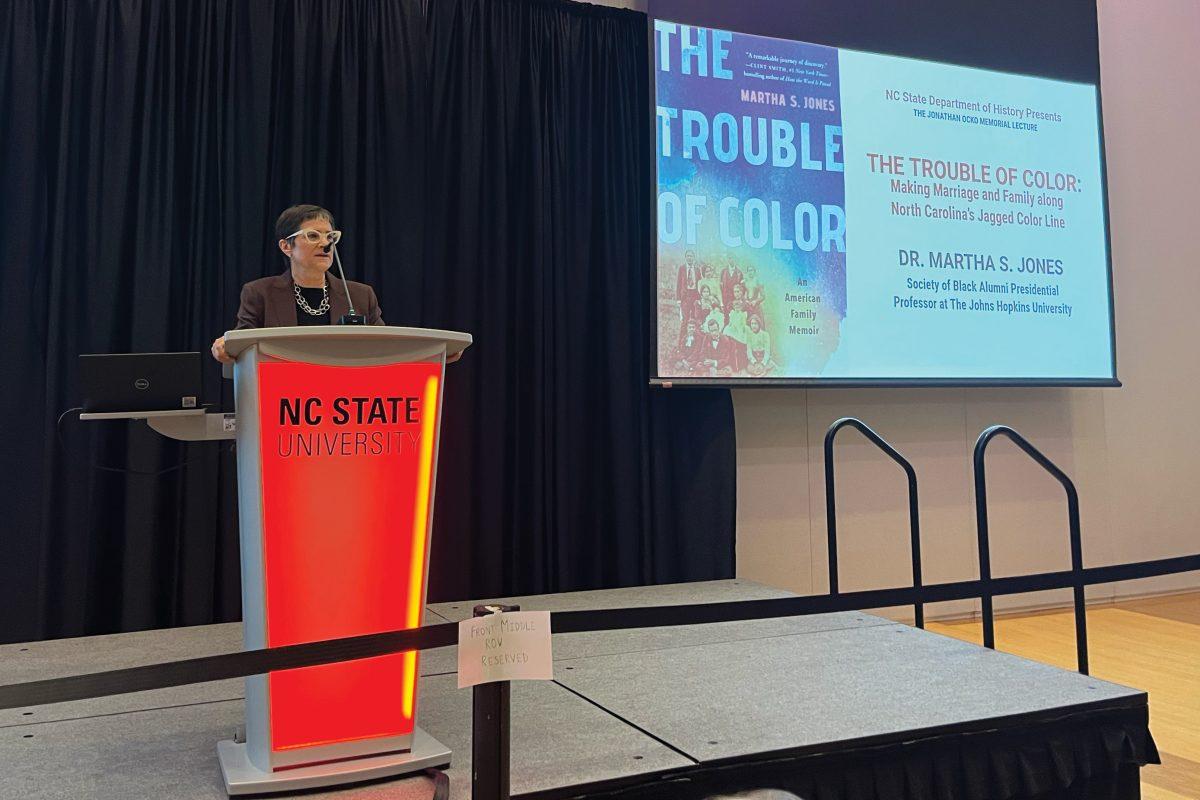Raleigh City Council member Jonathan Lambert Melton met with students Tuesday in the Student Government Suite for a Q&A session focused on local issues affecting the campus community.
Melton, an NC State alumni who graduated in 2008 with a political science degree, moved to Raleigh in 2004 to attend the university. After completing his law degree at North Carolina Central University, he decided to make Raleigh his permanent home, but that wasn’t without difficulty.
“I really struggled to find a place I could afford to live,” Melton said. “A lot of my friends at the time were living in other places, like D.C., and they were renting garage apartments or basement apartments and I couldn’t find anything like that in Raleigh.”
Melton said at the time, Raleigh had outlawed the building of accessory dwelling units, townhomes and duplexes in favor of single-family homes.
“I felt like that was ridiculous, and that was one of the things that I also worked on when I got elected, and those things are legal now,” Melton said. “I’m hoping as we can continue to increase the supply of our housing, help bring costs down, make more space for folks who want to live here and do that in a really sustainable way.”
Melton said he decided to run for office due to the make-up of the City Council at the time. He said it was aged, not diverse and supported backward and regressive policies, such as the banning of rental scooters.
“I felt like it was time for new leaders to step forward,” Melton said. “I kind of just felt like if not me, then who?”
Now serving his third term, Melton emphasized the unique nature of this council session.
“This session is unique because I’ve been elected two times prior, and we got so much done those first two terms that a lot of what I want to do this term is just to give some of those policy changes we made space to take effect,” Melton said.
One of the key projects Melton discussed was the Bus Rapid Transit, or BRT, system, which would be the first of its kind in North Carolina.
“Fingers crossed, it’s going to start construction this term,” Melton said.
Although there was a ground-breaking ceremony for the beginning of the construction of the transit system in 2023, there has been no actual construction yet. Melton said the project faces challenges, including finding contractors with experience in this type of construction.
Addressing public safety concerns, particularly in off-campus areas, Melton said he acknowledges ongoing challenges.
“We haven’t added enough officers to the police department to keep pace with population growth,” Melton said.
Melton said the city is conducting a compensation study to improve recruitment and retention of officers.
One achievement of Melton’s past term that is expected to come into effect this term is the Council’s alternative response for public safety, which embeds mental health professionals in Raleigh’s 911 call center.
“If you call and you’re having a mental health crisis, or someone calls that someone needs food or shelter, it is not going to be an officer that would respond to those calls,” Melton said. “It’ll be a social worker or clinician.”
On housing affordability, Melton emphasized the need for more diverse housing options, as Raleigh’s zoning laws have historically limited housing types and access to retail spaces.
“We grew in a really sprawled manner,” Melton said. “Zoning set it up to where people would live here, work here, shop here.”
Melton also discussed recent changes to Citizen Advisory Committees, or CACs.
“The demographics we got from CACs is they were majority old and white, and a very small portion of the Raleigh population was attended,” Melton said.
The city has since modified the system, creating a Community Engagement Office to embed engagement in all city processes and removing zoning cases from CACs.
Regarding state-level challenges, Melton mentioned recent legislation that has impacted local zoning abilities. He suggested that student engagement could make a difference.
“NC State’s a big entity here, and if the student body here got behind something that would probably help,” Melton said.
Syd Fryer, a third-year studying political science and Spanish and director of government affairs for Student Government, emphasized the importance of such interactions with local officials.
“Seeing how engaged the students were always makes my heart happy, because when we’re able to plan things that people really enjoy and feel like they learn something from, and then also just to show people that our hyper-local leaders are very accessible, very eager to talk with students and this opportunity for them to meet with constituents,” Fryer said. “So hopefully we’ll have the opportunity to do more stuff like this in the future.”
Ethan Clark, a fourth-year studying environmental sciences and meteorology who organized the event, said he hopes the event will teach students how accessible local representatives can be.
“As a student, I feel like a lot of students don’t know or want to know who is their representative and how to learn and work with them,” Clark said. “I just thought it’d be a good experience for students to interact with a city council member — stuff that matters very close to students.”
Melton said he encourages students to get involved in local government and that anyone can sign up to speak at city council meetings. He also mentioned opportunities to serve on boards and commissions, participate in neighborhood meetings and provide input on the city budget.












